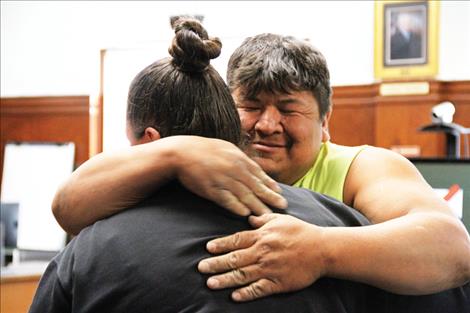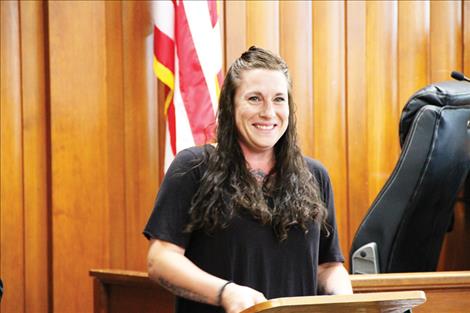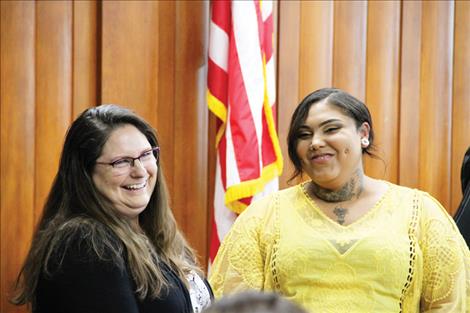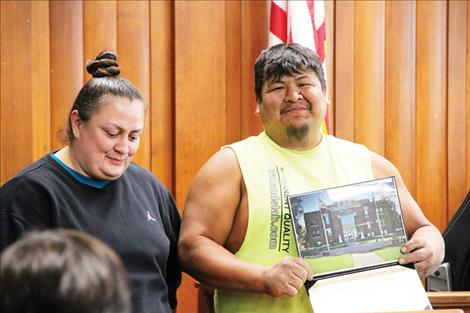- Home >
- Public Record >
- Courts
Drug court celebrates graduates

Taylor Davison

Taylor Davison
Michael Pierre Sr. embraces Drug Court Coordinator Dana Comes At Night, a who supported him throughout his journey to graduation.

Taylor Davison
Ashton James accepts her certificate of graduation and speaks about her experience.

Taylor Davison
Ginae Couture-Ware

Taylor Davison
Issue Date: 6/28/2023
Last Updated: 6/27/2023 5:01:35 PM |
By
Taylor Davison
Keep Reading!
You’ve reached the limit of 3 free articles - but don’t let that stop you.















